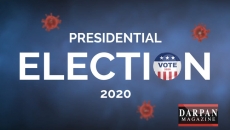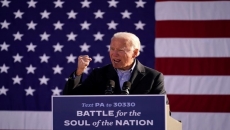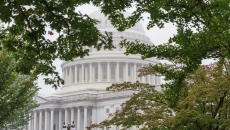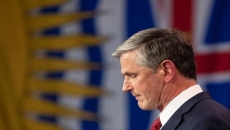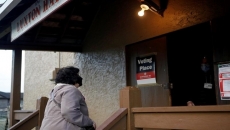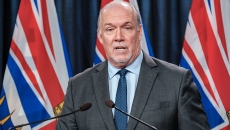With elections just around the corner in October, the political landscape in British Columbia is experiencing significant changes. The BC NDP, which has been in power for nearly seven years, faces mounting challenges. The province is grappling with soaring rent, cost of living, and a notable outflow of residents. In the past year alone, 70,000 people moved out of BC, a first in history. Despite these issues, the BC NDP remains ahead in the polls by a slim margin. According to the latest poll, the NDP leads with 40% voter support, closely followed by the BC Conservatives at 38%. The BC United trails behind the BC Greens, making the upcoming elections a pivotal moment in the history of BC.

Fall of the Mighty Liberals
The BC Liberal Party, now rebranded as BC United, is experiencing a dramatic decline. Once a dominant force, BC United is struggling to maintain relevance in the current political climate. The decision to change the party's name in April 2023, intended to distance it from the federal Liberal Party and unify the electorate, appears to have backfired.

Shachi Kurl, President of Angus Reid Institute, notes, "The gamble in changing the name didn't work." She highlights the broader political shift, explaining, "There's been a re-alignment. The NDP of the '80s, '90s, and even 2000s used to be extreme left of center, but it has come closer to the center since John Horgan. This has made it difficult for BC United to convince centrist voters to choose them."

Richard Johnston, Canada Research Chair in Public Opinion, Elections, and Representation at UBC, provides further context, explaining that the BC Liberal Party historically operated as a coalition, including federal liberals and more right-leaning members. This broad appeal helped maintain unity under leaders like Gordon Campbell. "The name change put the question of the party's identity on the table. People were willing to go along with the continuity of the label, but all of a sudden, that continuity is gone," Johnston explains.
The shift in BC NDP's position towards the center under John Horgan further squeezed BC United out of the centrist space, leaving them vulnerable. Johnston asserts that BC United's unique appeal as a pro-business, moderate party has diminished, pushing voters towards the more polarized options of NDP and Conservatives. This decline also reflects a broader trend where voters are less inclined to support centrist parties, preferring to lean towards the more defined left or right.
Continued Dominance of BC NDP
Despite their lead, the BC NDP cannot afford to be complacent. The rising cost of living is a significant liability, with over one-third of residents considering leaving the province. Kevin Falcon, Leader of the Opposition and BC United, criticizes the NDP for making BC the most unaffordable province in Canada, with the highest rent, fuel, and housing costs. "We've had seven years of BC NDP, and holding them responsible for the results is important. We have become most unaffordable—the highest rent, fuel, and housing in Canada and 70,000 people left BC for other parts of Canada last year for the first time. Our number one goal is to get rid of BC NDP," says Falcon.
Johnston points out that we're victims of our success. People want to live in British Columbia. They come here to get jobs but discover there’s no place to live, and the healthcare is a mess. The success of attracting people to BC has exacerbated housing and healthcare issues. He argues that the NDP is paying for decades of neglect in these areas, which didn't start in 2017.
Despite these challenges, Shachi Kurl adds, "There is dissatisfaction, but British Columbians have yet to decide that they trust another party."
Premier David Eby emphasizes, "We are working together to support families, individuals, and businesses when they're facing a lot of pressure. We've got people's backs, and we're standing with those who need that extra support right now."
Rise of BC Conservatives
The BC Conservatives have emerged as a formidable force, buoyed by the branding strength of federal conservatives. Once considered niche players, they now boast credible MLAs and a growing support base.

Elenore Sturko, who switched from BC United to the Conservatives, exemplifies this shift. "I was hopeful that my previous party, the BC United, would be able to make a deal to see us working together with the Conservatives. But when that didn't come together, I had to make a decision for myself," Sturko explains.
John Rustad, leader of the BC Conservatives, aims to clearly define his party's vision. He focuses on priorities such as eliminating the carbon tax, making hard drugs illegal, restoring the resource sector, and improving public safety. Rustad is determined to run 93 candidates and form a majority government, believing British Columbians are counting on them for change. "If we form a government, we will have several priorities, including the elimination of the carbon tax, making hard drugs illegal, making our streets safer, restoring our resource sector, and hiring back our healthcare workers," says Rustad.
The political scene in British Columbia is dynamic, with the NDP holding a fragile lead, BC United struggling for survival, and the Conservatives gaining ground. Regardless of who wins, the next term will be challenging. The rising cost of living, unaffordable housing, skyrocketing rents, and escalating fuel prices are significant concerns. The healthcare system, plagued by long emergency lines and critical service shortages, demands urgent reforms. These issues and several others require strong leadership and innovative solutions. The upcoming elections promise to be a turning point, setting the stage for addressing these critical challenges. British Columbians will be watching closely, hopeful for a government that can rise to these challenges and deliver meaningful change.
